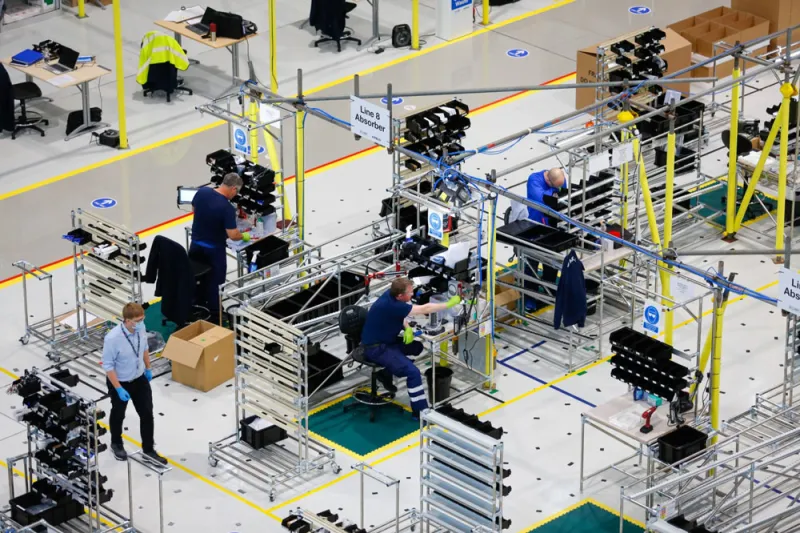Companies that are protecting their work force in the coronavirus crisis produced smaller losses in the recent stock market crash as they attracted more money from institutional investors, according to a Harvard University professor and State Street Corp.’s investment research arm.
“During a market crisis, investors are looking for evidence that a company can be resilient,” Harvard business school professor George Serafeim and State Street Associates’s Alexander Cheema-Fox, Bridget Realmuto LaPerla, and Hui Wang, wrote in a recent paper. Their findings on the evolving crisis are based on data from February 20 to March 23, when the Standard & Poor’s 500 index plummeted 27 percent amid escalating fears over the coronavirus.
Investors in this period favored companies with more positive sentiment surrounding their work force and supply chains in particular, their study found. The operating response of management teams during the stock market crash typically had less influence on returns and investor behavior.
“Companies with labor and supply chain practices that were seen as protecting employees and taking action to secure their supply chain experienced higher institutional money flows and less negative returns,” the researchers wrote in the paper. “This is especially true for companies with more salient responses.”
[II Deep Dive: The Power of Social Media in Predicting Stock Returns]
The researchers analyzed big data from natural language processing, measuring positive versus negative sentiment in corporate responses during the crisis. For example, news surrounding layoffs or the absence of sick pay led to a negative score, while efforts aimed at keeping workers safe and avoiding staff reductions were considered positive in tone.
The findings challenge the notion that companies need to “adopt practices that hurt their employees because investors want them to do so,” according to the Harvard and State Street researchers. If that were true, they said, “one would expect exactly the opposite results.”
Investors were spooked in the first quarter as governments grappled with Covid-19 — the deadly disease caused by the new coronavirus. “After the S&P 500 reached record highs on February 19th, the market observed the largest one-week declines since the 2008 financial crisis,” the authors said.
As the stock market plunged toward this year’s March 23 low, investors scrutinized companies’ labor practices and looked for signs of repurposing operations and skills to create much-needed products such as masks and ventilators, according to the paper. Positive sentiment surrounding human capital and supply chain practices tended to garner more investor confidence than a repositioning of operations in the pandemic.
That may be because investors viewed operational moves as idiosyncratic, whereas positive treatment of human capital did more to earn their trust in companies’ ability to successfully navigate the ongoing crisis, the researchers suggested.
“Avoiding lay-offs, providing flexible work schedule and paid sick leave could all allow the firm to be more resilient in the face of adversity,” they wrote in the paper. “They might be able to maintain high employee productivity while mitigating costs by avoiding employee churn.”







